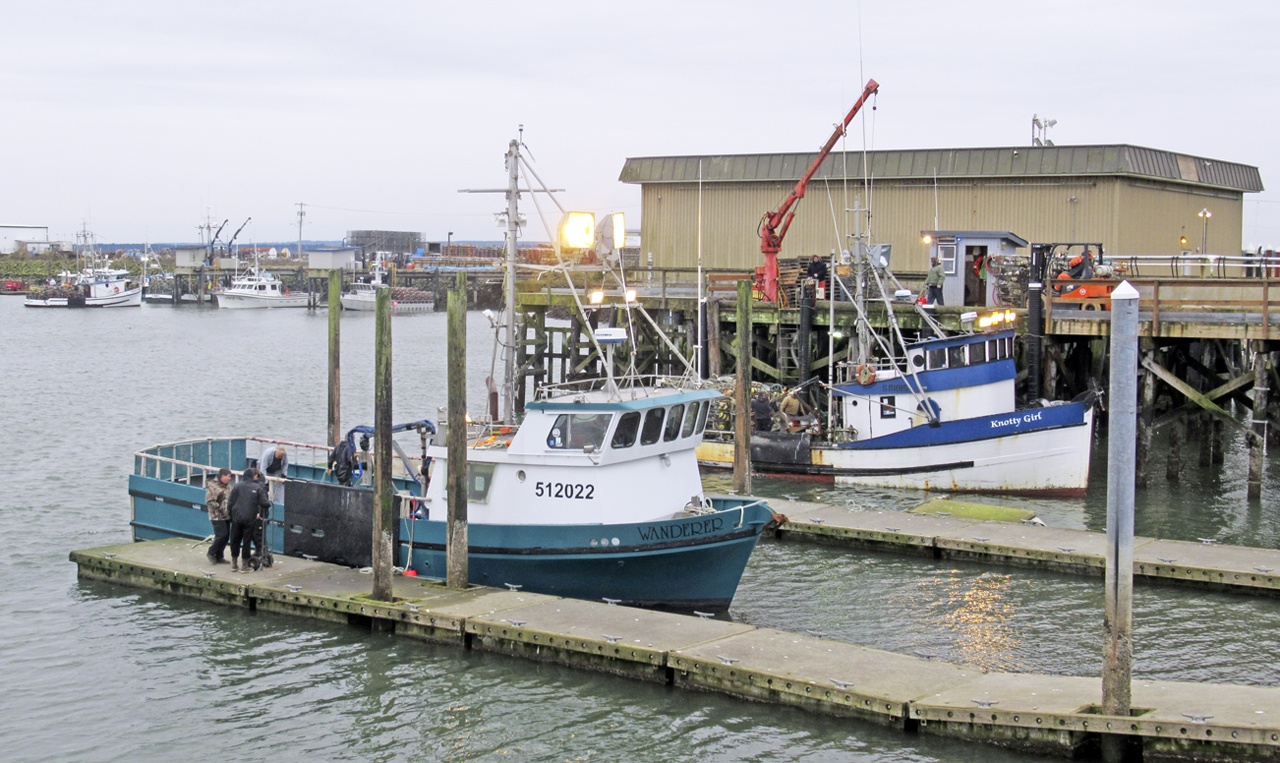Late Friday, West Coast crab fishermen and their principal buyer — Pacific Seafood Group — reached a price agreement that brought to an end an 11-day industry-wide strike launched Dec. 26 in Humboldt County, Calif.
Pacific Choice Seafood in Eureka, Calif., a subsidiary of Pacific Seafood Group, unexpectedly reduced its price from a preseason agreed to $3 per pound to $2.75 per pound on Dec. 26. The $3 price had been paid to fishers out of the San Francisco area since Nov. 15.
The price reduction was scheduled to take place at the opening of District 7 — from Point Arena to Humboldt Bay — on California’s northern coast. In response, Humboldt fishers tied up their boats in protest. When word got out, close to 1,200 crabbers — from Bodega Bay, Calif., to Westport — tied up their boats as well, in a show of coastwide solidarity.
Negotiations in Oregon last Friday resulted in the Humboldt Fishermen’s Marketing Association and Pacific Seafood Group splitting the difference, agreeing on $2.875 per pound. By a “gentlemen’s agreement,” crabbers all along the West Coast started dumping their pots at 8 a.m. Saturday, with fishing allowed to start at 8 a.m. Tuesday, following a 72-hour soak period.
The Westport marina was busy with activity well before dawn Saturday morning, as crabbers finished loading their boats with pots, topped off fuel tanks and headed out to sea, fortunately in calm waters.
After setting their initials strings, many repeatedly returned to port for more pots for additional dumps. Activity around the docks remained hectic for close to 24 hours.
Dump day weather cooperated with an easterly wind off the beach in the morning that eased off later in the day. While it was cold and the water choppy, there was no swell until the early hours of Sunday morning.
Mother Nature was cooperative again Tuesday morning when crabbers started pulling pots. Early morning easterly winds turned to southerly at 20-30 knots, with a 6’ swell, making pulling pots easier, especially for the large crowd of smaller boats that fish out of Westport and Tokeland.
Since the West Coast Dungeness crab season opens in waves from south to north, state fishers out of Westport and Tokeland and south to the Oregon coast were the first to be affected by the strike. The state coastal commercial Dungeness crab fishery between Klipsan Beach and Cape Blanco opened Jan. 1, resulting in those crabbers losing 10 fishing days.
Those who waited to fish for the state opener northward between Klipsan Beach and the Queets River last Saturday, Jan. 7, lost three days.
If this season follows past patterns, demand for crab will remain high at least through February. As supplies of landed crab deplete, prices generally rise — something crabbers are cautiously counting on to help them recover from the late starts.



